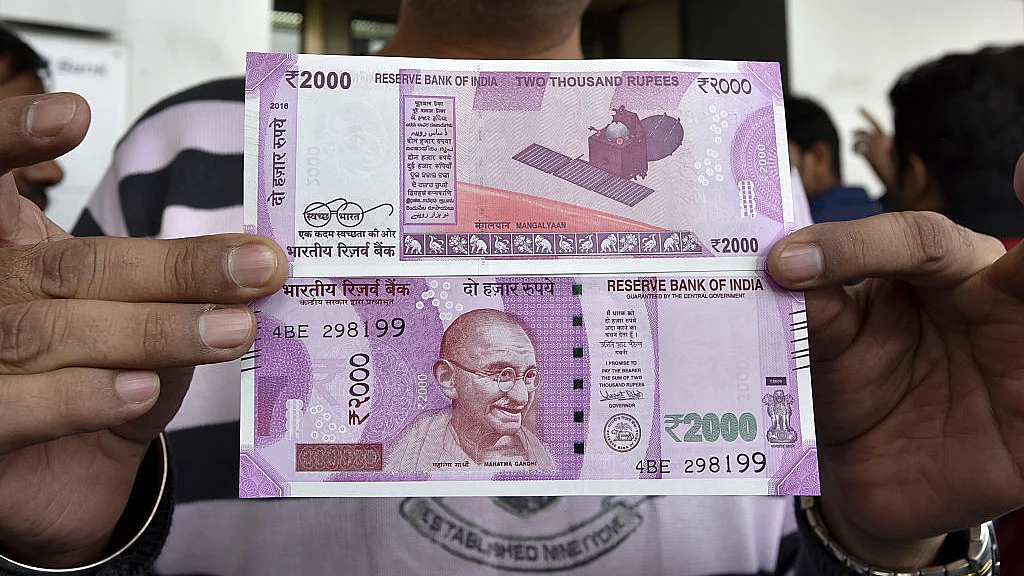Budget transparency move may make political funding more opaque
The Union Budget proposals on cleansing political funding may be a leap backward as it could result in parties disclosing less funds

Finance Minister Arun Jaitley may have been the first to raise the issue in a budget speech, but his proposed reforms may not really translate into “greater transparency and accountability in political funding, while preventing future generation of black money.” A closer look at the proposals makes one wonder whether it has become more opaque than it’s now with enough leeway still for black money to sneak in.
"It is unfortunate to note that complete transparency in the finances of political parties has still not been adopted in the Budget of 2017-18 and the proposed reforms are inconsequential as the political funding will continue to remain opaque," says Association for Democratic Reforms (ADR) in a press statement.
If the proposals are passed as laws this parliamentary session, then from April 2017 onwards, donations in cash can be made up to ₹2,000 only by any person; payments of anything more can be done only through cheques or digital mode and donors will be able to buy 'electoral bonds' that will be sold through commercial banks under the regulations made by the Reserve Bank of India. How transparent would political funding be if these changes are adopted?
"If the amendments are approved by Parliament, political party funding is likely to become largely opaque in future," says Venkatesh Nayak, who coordinates Access to Information Programme at the Commonwealth Human Rights Initiative.
The fine print
Till now, political parties could receive cash up to ₹20,000 that has now been reduced to ₹2,000. However, there is no suggestion in the Budget to amend Section 29C of The Representation of People Act, 1951 that mandates that only donations of ₹20,000 or above will be required to be reported to the IT Department or to the Election Commission of India. "Political parties will still not have to report details of donations below ₹20,000," says Nayak.
Also, though the digital mode of payment is encouraged, the point is anonymous donations such as sale of coupons and the like have not been curtailed. So, what it all means is that with cash donation limit reduced to ₹2,000, political parties may have to do more paperwork to show cash receipts of being ₹1,999 now instead of ₹19,999.
ADR says the ₹2,000 proposal is flawed as the Budget does not promise scrutiny of income declared by political parties from various sources and the corresponding measures of penalisation without which the reforms will remain incomplete.
Then there is the new announcement issuance of "electoral bonds" that individuals and companies can buy through commercial banks. The bonds supposedly provide anonymity to the donor so that, say, other parties will not know if the bonds are transferred to a particular party's account. This is in contrast to paying a cheque or an electronic transfer of above ₹20,000 directly to parties, which the later will have to mandatorily make it public.
"Electoral bonds have the potential to make political party funding largely opaque," says Nayak. The amendments proposed in the Budget to the RP Act, 1951 suggest that political parties "will not be required to disclose the identity" of individuals and companies who make donations through electoral bonds bought from the commercial banks. It doesn't matter if the donation runs into crores!
Political parties thus will then be under no obligation to disclose any donation or contribution that they receive at all, unless it is made electronically or through cheques. "This is not a step forward in political party funding but a leap backward into the era of secrecy ordained by law," says Nayak.
A study by ADR showed that the majority of funding across all political parties was through "unknown sources". The fact is parties can voluntarily declare details of every rupee they receive, and how they spend it. But, that political will is missing.
Besides, all the above arguments could still be based on the assumption that political parties maintain all the donations they receive in their book of accounts. “The Budget assumes that; however, it is believed that really is not the case in reality,” says Prof Trilochan Sastry of IIM Bangalore, who is also the Founder Member of National Election Watch and ADR. “It is important to truly trace the origin of black money,” says Sastry. Somehow it doesn't seem like that puzzle will be solved soon.
Follow us on: Facebook, Twitter, Google News, Instagram
Join our official telegram channel (@nationalherald) and stay updated with the latest headlines
- Arun Jaitley
- RBI
- Election Commission
- Reserve Bank of India
- Finance Minister
- Union Budget
- political parties
- Association for Democratic Reforms
- ADR
- National Election Watch
- Budget 2017
- Venkatesh Nayak
- IT Department
- Commonwealth Human Rights Initiative
- political funding
- electoral bonds
- Trilochan Sastry
- IIM Bangalore